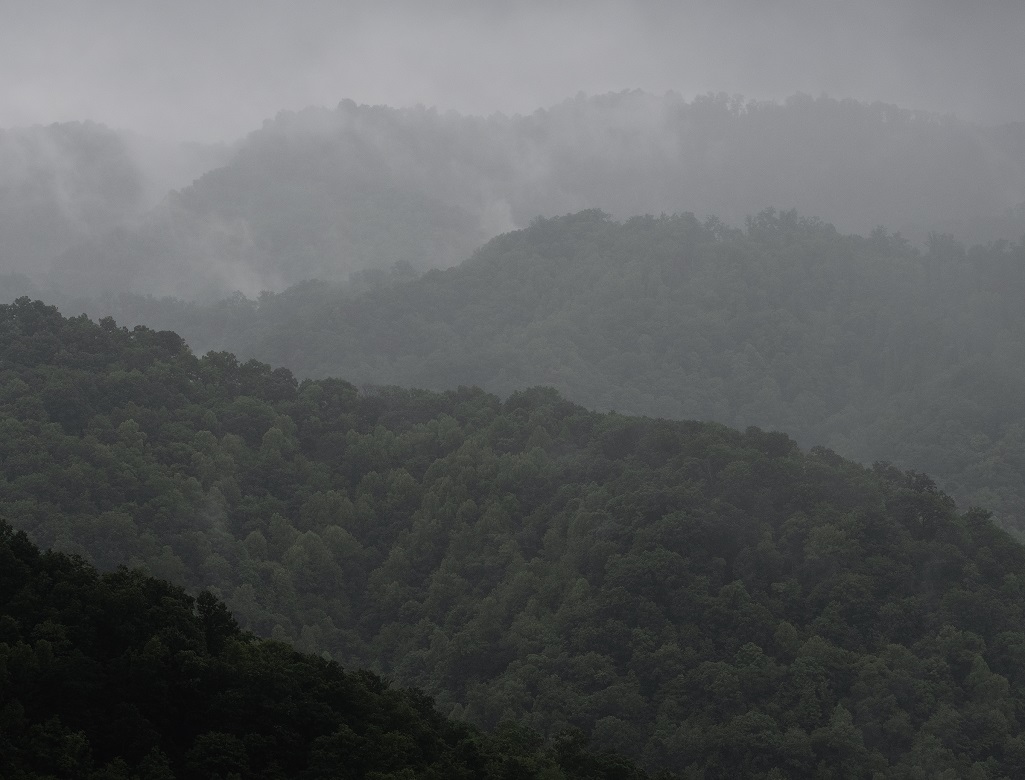*This article originally appeared in RVA Mag #36, on the streets now at all your favorite spots.
For years, the cultural and historical notions of Appalachia have been dictated by white, straight narratives. The understanding of the mountainous, rural region’s inhabitants as ignorant “hillbillies,” incapable of independent thought, drove the political narrative that formed around this “forgotten” region of America after the 2016 election. In the wake of that electoral disaster, many pointed fingers at Appalachia and labeled it “Trump country.” The coverage surrounding Appalachia was that of passive, poor, conservative voices.
With much of the blame resting on their shoulders, the people of Appalachia now face a divisive political paradigm: one in which the outside world can justify its continued willingness to overlook and ignore issues in the region. What these dismissals fail to realize, though, is that marginalized people live in Appalachia. There are large populations of people of color, indigenous persons, and queer individuals who call the mountains their home.
Often forgotten by their own country, these marginalized communities stand in the face of adversity every day, struggling to get by in a region with a strong economic dependence on declining fossil fuels, the highest rates of opioid addiction in the nation, and the country’s highest population of conservative Christians — a group that tends to have no interest in their plight.
Yet despite the odds stacked against them, they continue to fight back against bigotry, building their communal ties through social media, and taking action in their communities to rewrite their own narratives.

For founder Gina Mamone, the Queer Appalachia collective did not set out to be a cultural movement. What began as an inside joke — a way of coping with their own self-identity in a place that was unforgiving — became a stepping stone for other queer people in Appalachia to share their art and stories.
Created as a memorial to their friend, activist Bryn Kelly (who died in 2016), the group’s zine and active social media accounts became a way for Mamone and many others to address their identity within Appalachia.
With the help of the community, Queer Appalachia’s zine, Electric Dirt, has grown into a 200-page magazine encompassing the art and lives of queer individuals all over the Appalachian region. Their Instagram now boasts 136,000 followers.
Focusing heavily on local artists’ work, the zine encompasses art and pieces from all over Appalachia and the South. And none of it serves to profit the collective.
“We don’t keep the money,” Mamone explains. “It all goes back to the community.”
This community outreach includes coat drives for those who are homeless or can’t afford warm clothes this winter. The group also helps to organize events like “No Thanks,” a project to recognize indigenous communities and the struggles they faced during the Thanksgiving holiday.
The organization also works to help queer addicts in Appalachia. Opioid addiction is an epidemic that has plagued the region for some time. In 2016, West Virginia had the highest risk of opioid-overdose deaths in the nation, while Virginia has seen a steady increase in opioid-related deaths over the past several years. It’s a problem that has no clear solutions, and one that Mamone believes is a part of continual exploitation of the region.
“No one is really looking out for queer addicts,” Mamone said. Queer Appalachia has become the first organization to collect data on opioid addiction within the region’s community, and Mamone explains that the average amount of queer people addicted to opiods in West Virginia is around 90 percent. According to Mamone, it only gets worse for queer people of color: for them, the statistic rises to 98 percent.
There is this perpetual ideology of pulling yourself up from your bootstraps — but that’s not how addiction works,” Mamone said. “Most of the aid comes from churches. Straight people can accept Jesus [and get help], but when you’re queer, no [religious] community will have you.
Queer Appalachia is trying to break the stigma by working to establish a recovery program for LGBTQ addicts. They hope to create queer-led meetings centered around community, offering narcan training and clean needle exchange.
Queer Appalachia is not the only movement in the region that is helping to rewrite the narrative of marginalized people. Another is Cornbread Communism, a loose-knit group of Appalachian activists who came together to create The Cornbread Communism Manifesto, another zine set on changing the narrative of Appalachian voices.
“When pieces are written about rural Appalachia, it’s from the perspective of an outsider, and completely lacks authenticity or nuance,” said activist Sacco, who acted as the chief editor, designer, writer, and artist for the Cornbread Communism Manifesto. “At best, it’s poverty porn framed around ‘Look at these poor, bumbling souls.’”
The Cornbread Communists have made it their mission to spread awareness of Appalachia’s long history of resistance, and to unite disparate groups of Appalachian activists. Often overlooked by activist movements, the region has a history steeped in exploitation. Its roots lie in communities made up of poor immigrants, runaway enslaved people, and indigenous groups. The discovery of coal allowed the exploitation to grow, as coal companies abused their power to trap local workers into an exploitative system of cheap, feudalistic labor.
Our history is that of capitalist exploitation for labor and natural resources, and currently by pharmaceutical companies dumping opioids into communities,” Sacco said. “Because let’s be honest — liberals and conservatives see us as trash.
Despite adversity, the most marginalized people in these communities are working to shift public opinions, making space for themselves as they share their stories to the rest of the world.
“I’m thankful I have the opportunity to change the narrative,” Mamone said. “I want to build this platform for the community.”
Top Photo by Roger May



